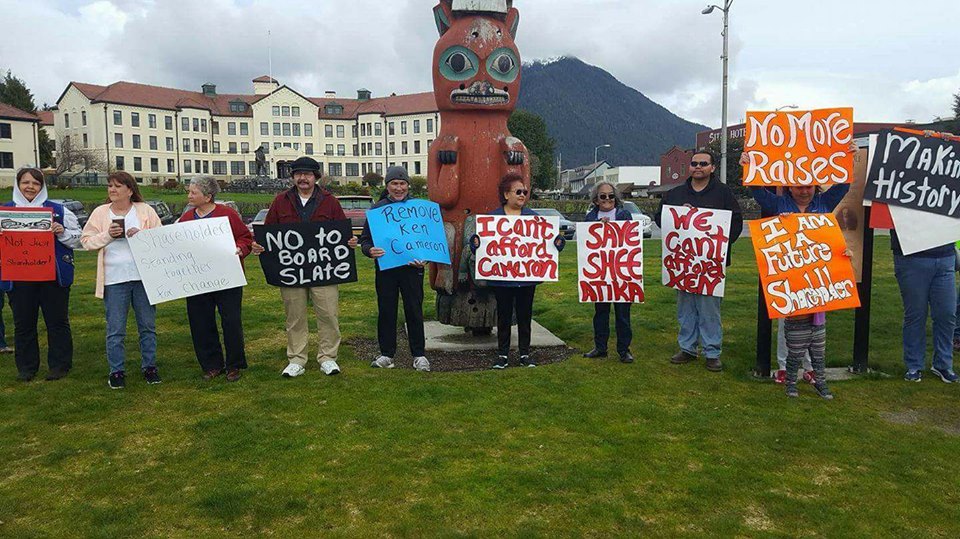
Tension between a Native village corporation and its shareholders has reached a boiling point. Shee Atiká called Sitka police to their annual meeting, saying threats had been made against staff and the board. But shareholders have a different story: one of raising their voices against a corporation in financial free-fall and calling for new leadership.
Shee Atiká has 3000 shareholders. Christine Silvanio is one of them. She flew all the way from New Jersey to attend the annual meeting on May 20th, but was asked to leave when two staff members noticed she was livestreaming the gathering over Facebook. She stood alongside Margaret Carlson of Sitka. They huddled outside the front door of Allen Hall, as the rain poured and shareholders milled about.
“Basically they both threatened to have me escorted out,” Silvanio said.
“I interpret it as they’re hiding something,” Carlson said.
The purpose of the meeting is to elect three board members. The corporation recommended incumbents Joshua Horan, Faleene Worrell and Shirley Yocum for those slots, while a grassroots movement put together their own slate of candidates. Their candidates are Laurence Garrity, Roxanne Drake Burkhart and Lillian Young.
Calling themselves Shareholders for Shee Atiká’s Future, the group organized through a 1000+ member Facebook page.
”It’s time for a change,” Carlson said. “All [current leadership] has done is take our corporation down millions of dollars.”
Much of the focal point of shareholders’ frustration is CEO/President Ken Cameron, who is also the Board Chair. Cameron was hired in 2010, when total revenue was at $180 million (2010 Shee Atika Annual Report). As of the last annual report in 2015, Shee Atiká’s revenue had plummeted to $3 million.
In a letter to shareholders, Cameron attributed this nose dive to a variety of things — from outstanding debts to negative cash flow from Shee Atiká’s hotels to a loss of federal contracts. But to shareholders, the recovery has been slow and questionable. Funeral benefits and scholarships have been trimmed, while Cameron’s salary has only grown. He made $411,000 in in 2016.
To bring Shee Atiká back into the black, the corporation is selling thousands of acres of its land in Cube Cove to the Forest Service. Mike Kinville, a shareholder based in North Pole, is worried the corporation is on the path towards landlessness and bankruptcy.
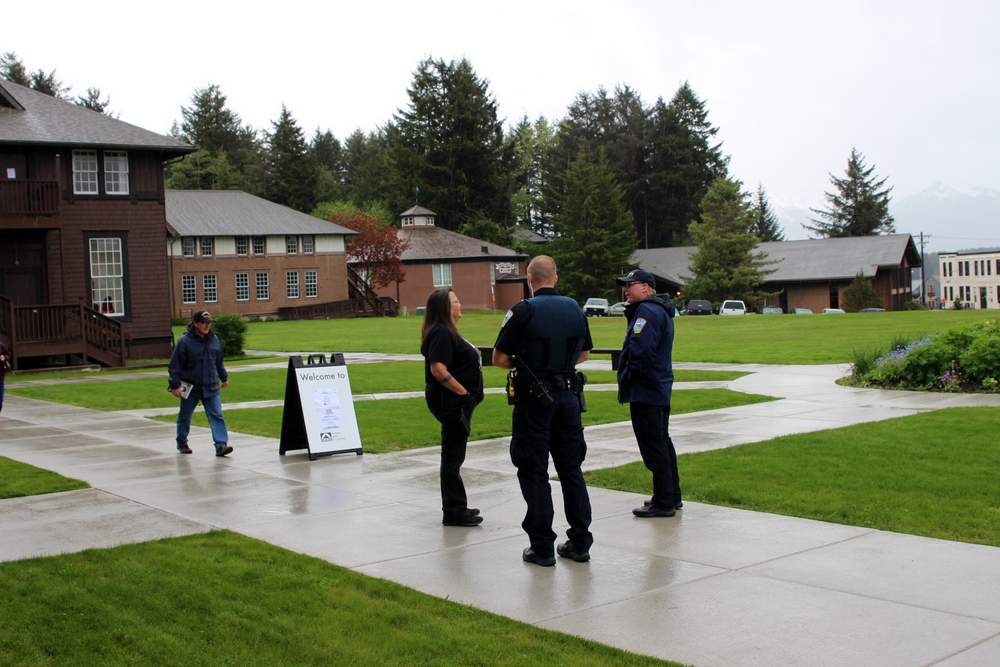
“It’s not a corporation to me. It’s not a business to me. It represents my legacy,” Kinville said. “As a Tlingit man, it’s my responsibility to pass it to my descendents. But when I see it being run like this…and if you look at the financials, you can see that it’s failing.”
But it’s not just Shee Atiká’s business strategy that’s raising tempers today. It’s also how they’re treating shareholders.
Unlike some other Native corporations, independent candidates for Shee Atiká’s board are not allowed to run on the same ballot – called a proxy. And when an independent group of shareholders mailed out their own proxy with their own money, Shee Atiká put up a regulatory block: They claimed one of the three independents – Lillian Young – was ineligible to run. State regulators ruled otherwise and ordered the corporation to extend elections.
The morning of the meeting, a huge wave of people showed up – filing past those two police officers Shee Atiká called – to hand in their proxies. The board closed polls around 9 a.m., as planned, and went into recess for three hours to count votes, refusing to take questions like in the past. This left roughly 200 shareholders, many of them elders, waiting and frustrated.
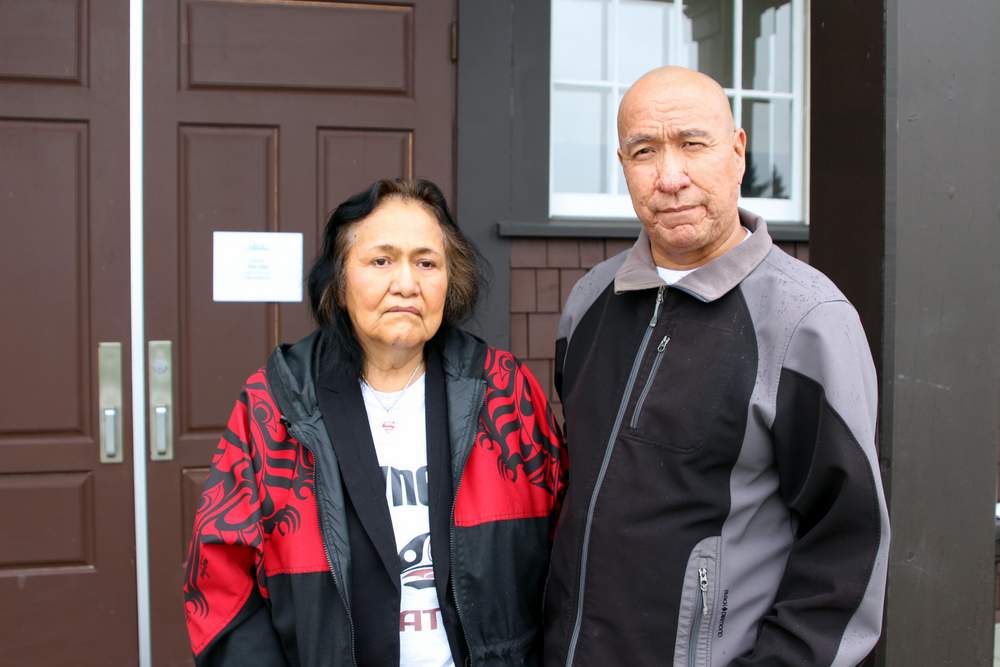
David Kanosh is blind. He returned with his arm looped around his mother’s, Eloise.
DAVID KANOSH: We just went home after all of this. I was too upset to stay around.
ELOISE KANOSH: It was very upsetting.
DAVID: When you can’t see where you’re going and nobody’s helping you, this is disabled abuse. This is elder abuse.
Shee Atiká did not return KCAW’s requests for comment after the meeting, but later published a statement on their website, saying they didn’t intend to mistreat anyone and the elections inspector needed time to properly count all the votes. They called police out of concern, claiming threats had been made in the past.
Around lunchtime, Shee Atiká called Sitka police again. Lieutenant Lance Ewers said they were concerned about public safety.
“They knew it would be very emotional,” Ewers said. “They just don’t want anybody getting in trouble or causing a ruckus.”
Shareholders did come bearing protest signs and boisterous attitudes, but not much else. Officers determined there was no threat to public safety and left. Both sides, it seemed, had their defenses up: Shee Atiká stonewalling any attempt by shareholders to speak, and shareholders voicing that outrage at will.
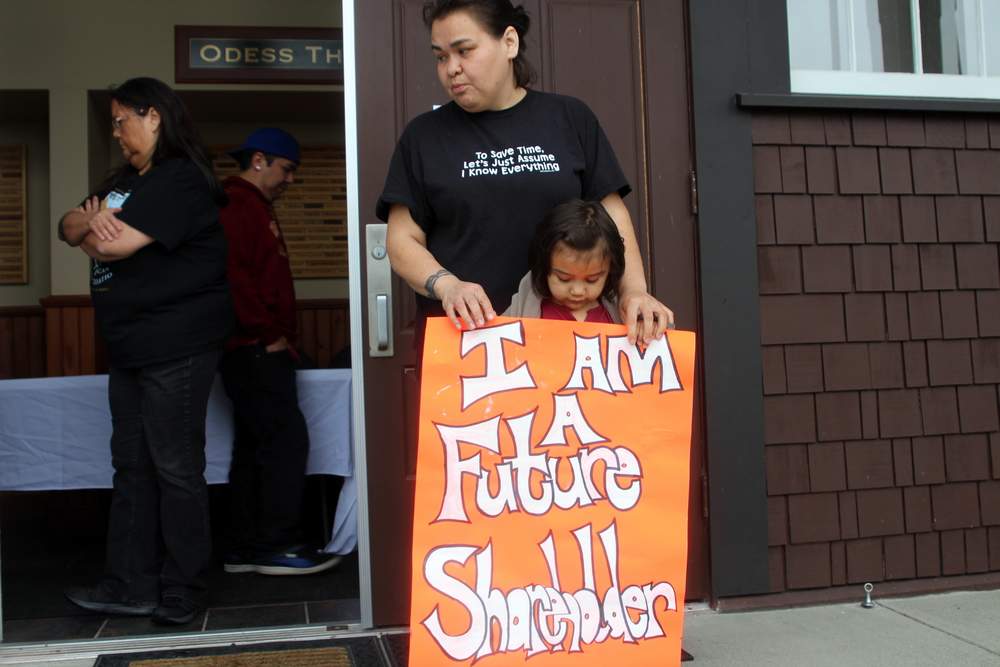
While KCAW was standing in the foyer of the building, the corporation’s lawyer – Bruce Edwards – said no press were allowed in the building. “If you want to talk to them out there, take pictures out there..but not inside the premises,” he said.
And then, along with staff, Edwards shut the door. Carlson and Silvanio – she’s the one who was livestreaming – were pretty upset.
SILVANIO: See how they treat us. This is how they treat us.
CARLSON: See what we’re coming up against?
SILVANIO: This is how they treat the shareholders.
Many shareholders said the conduct of staff and the board was especially hurtful given Shee Atiká’s history. Native and native village corporations were created to protect rights and sovereignty, from the oldest shareholder to the youngest.
Bunny Blackbird came with an orange sign that said, “I am a future shareholder.” Her mom Martina Dundas is a partial shareholder, born after the Alaska Native Claims Settlement Act was signed in 1971. The way the corporation is going, she’s worried her daughter is going to inherit nothing.
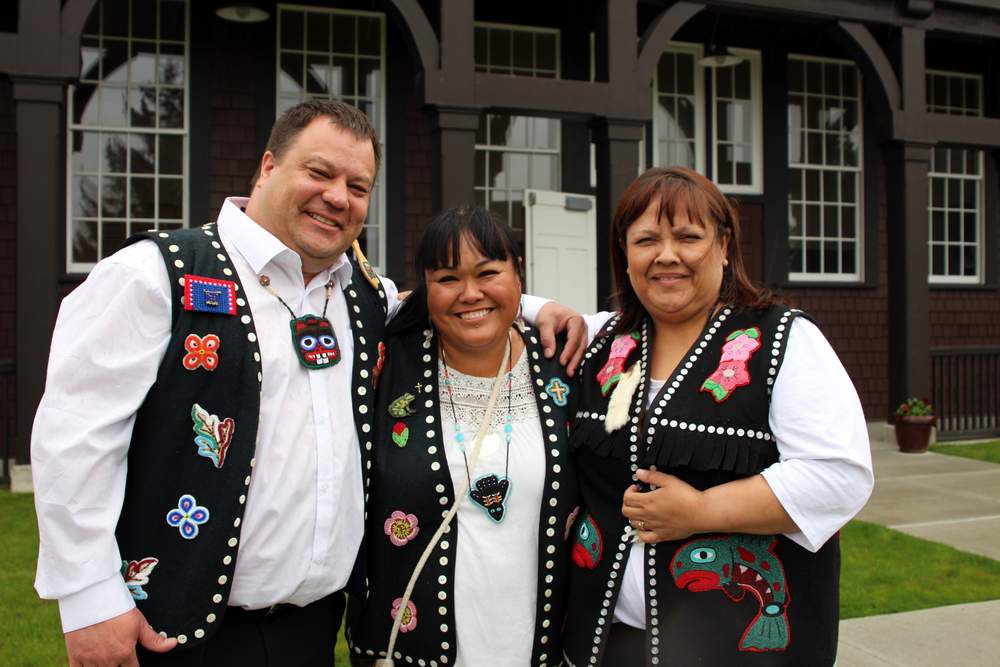
“[Bunny] got on the microphone in there, after they adjourned for the first intermission,” Dundas said. “And she said, ‘I want Shee Atiká to be saved.’ And she said, ‘Amen.’ Many people in there had tears in their eyes as they said, ‘Amen’ as well. I don’t want this corporation to go away. I want it to be a legacy of their grandchildren. My great-grandchildren.
From inside, we hear a chorus of applause and cheering. The independent movement just got a break: enough votes to unseat Shirley Yocum, a board director for 30 years, with newcomer Laurence Garrity.
Dundas let out a big exhale.
DUNDAS: “Finally, it seems like we have somebody that has our interests.”
KCAW: What are you going to tell your daughter when she asks, “Mommy, what happened?
DUNDAS: I’m going to say we’re going to get all the ducks lined up to be able to provide for her.
The meeting is over. The board is about to convene behind closed doors. Carrying a huge stack of papers, Garrity hopes his election will send a message to Shee Atiká.
“You know, in 9 days, we got 98,000 votes,” Garrity said. “In three weeks, they got 90,000. They need to listen to our elders, listen to our people.”
Garrity is just one vote on a nine member board. Later that day, the group re-elected Ken Cameron as chair. Their next meeting is in July. As for the independent movement? They’re gathering steam, raising money through silent auctions, crowdfunding and other means to support more independent representation and attempt to remove Cameron entirely.




